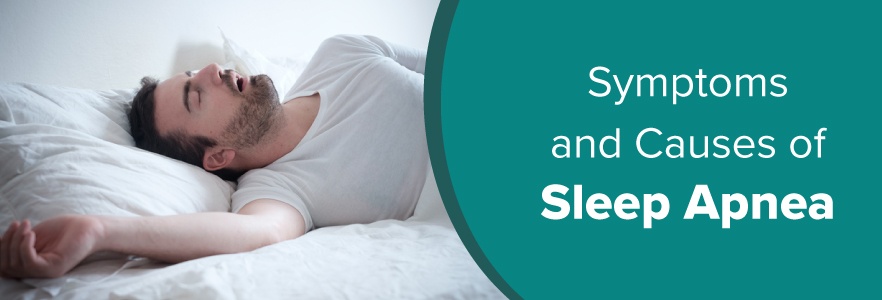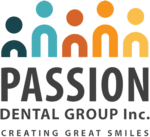
When people hear sleep apnea, they usually associate it with snoring. But sleep apnea is a lot more than just loud snoring — it can be a serious health risk. It is related to cardiovascular disease, accidents caused by drowsiness and lack of sleep, hypertension, glaucoma, heart attack, stroke, acid reflux disease, abnormal heart rhythm, diabetes and even premature death. It’s not something to be taken lightly.
Sleep apnea is a sleep disorder that affects the breathing patterns of an individual. When someone with sleep apnea is asleep, their breathing stops and starts regularly. Loud snoring can be a sign of sleep apnea, and feeling tired after a full night sleep is another.
There are three primary forms of sleep apnea:
- Obstructive Sleep Apnea (OSA): As the most common form of sleep apnea, this happens when throat muscles relax and block the throat air passage. This can mainly be a problem with older adults as throat muscles become looser after 40. When the air passage is blocked, oxygen does not reach the brain, so the brain signals the body to wake up and resume breathing. This can happen a few times a night or in severe cases hundreds of times a night. Obesity is one of the most common causes of obstructive sleep apnea in adults.
- Central Sleep Apnea (CSA): If OSA is a mechanical problem, then CSA is a communication failure. The brain fails to send the appropriate signals to the muscles that control breathing when you’re sleeping. Breathing repeatedly ceases for several seconds. The sleeper may not even be aware that they are awakening many times during the night because of the breathing. CSA is much less common than OSA, comprising less than 20 percent of all sleep apnea cases.
- Complex Sleep Apnea Syndrome: This occurs when someone has both types of sleep apnea. It is also known as treatment-emergent central sleep apnea or mixed sleep apnea. It was first diagnosed as a sleep apnea condition in 2006 when researchers noted that about 15% of patients with OSA who were being treated with Continuous Positive Air Pressure (CPAP) machines continued to have breathing problems.
People who suffer from sleep apnea have a premature death rate that is three times higher than people in the general public.
Table of Contents
What Are the Symptoms of Sleep Apnea?
Regardless of the kind of sleep apnea a person may suffer from, there are many causes for the condition. OSA occurs when the tongue or tissue in the throat obstructs the airway as an individual is sleeping.
Other symptoms of OSA include:
- Regular Loud, Disruptive Snoring: Everyone may snore a bit during sleep, but snoring that occurs during OSA is loud enough to wake up the snorer’s partner.
- Interruptions in Regular Breathing: Caused by obstructions in the throat, interruptions in breathing are frequently followed by choking or gasping sounds as the body fights to overcome the blockage. A person suffering from mild sleep apnea will have interruptions in their breathing five to 14 times an hour, 15 to 30 times an hour for moderate OSA 30 or more times an hour for severe OSA.
- Extreme Daytime Drowsiness: The frequent interruptions of sleep that occurred during the night can cause a person to be extremely drowsy during the day.
- Frequent Bathroom Visits: Doctors now recognize frequent nighttime visits to the bathroom are as much a sign of sleep apnea as loud snoring. Recent studies have shown that 84% of patients with OSA experience this symptom, which occurs when the brain is deprived of oxygen by OSA and sends a signal to the body to wake up. By this time, the heart is also racing and receives a false signal that there is a fluid overload. It then releases a hormone that tells the body it’s time to urinate.
- Headaches Every Morning: In the same way that alcohol restricts blood flow to the brain, OSA means you have less oxygen in your bloodstream which leads to morning headaches. This is why one of the most common forms of treatment for obstructive sleep apnea is to stop drinking alcohol.
- A Consistent Inability to Sleep Well: When you have OSA, you sleep fitfully because you’re repeatedly awakened during the night by your brain signaling your body to start breathing again. This disrupts the regular patterns of non-REM and REM sleep.
- Bad Moods: When you don’t sleep well, you don’t feel well. When you don’t sleep well, it can have a direct effect on your mental well-being, too. Depression and irritability are common signs of obstructive sleep apnea that can lead to a more severe form of depression if left untreated.
CSA is frequently caused by medical problems with the brainstem. The symptoms of CSA are similar to those of OSA, but with slight differences. For instance, snoring can also be a sign of CSA, but may not occur at all in people with CSA while it is almost always a sign of sleep apnea in people with OSA. Other symptoms include:
- Regular breathing is interrupted during sleep — a person with CSA may stop breathing for short periods or breath irregularly
- CSA sufferers awake with shortness of breath
- Pronounced drowsiness during the daytime
- Always feeling tired
- Headaches in the morning
- Difficulty concentrating on tasks, even simple ones
- Bad sleep
- Depression and mood changes
- Snoring — but as noted above a person may not snore at all and still suffer from CSA
Complex or mixed sleep apnea has symptoms of both OSA and CSA. Occasionally, patients being treated for OSA with CPAP machines show signs of CSA. While this phenomenon had frequently been noticed in sleep laboratories, it wasn’t thoroughly researched until 2006.
That year, Mayo Clinic researchers studied more than 200 patients with sleep apnea and found that 15 percent of them who were initially thought to be suffering from OSA were suffering from complex sleep apnea. The study showed that even though the airways of patients with complex sleep apnea were successfully cleared of any obstructions, they continue to have trouble breathing while they were sleeping. Now that the doctors are aware of this potential condition, it is much easier to spot than in the past.
What Are the Causes of Sleep Apnea?
Now that we’ve talked a bit about how to recognize the symptoms of sleep apnea, let’s look at what doctors and researchers believe leads to sleep apnea. Some risk factors include:
- Obesity: In adults, obesity and extra weight is the number one cause associated with OSA. Numerous research studies have shown that people who are overweight suffer from OSA far more often than people who maintain a healthy weight. When an individual is overweight, the neck and throat build up excessive fatty tissues. These deposits restrict airflow in the upper respiratory system by narrowing or closing the air passageway during sleep.
- Aging: As people age, their muscles lose tone, including the tissues in the throat. As tone fades, throat muscles become weaker, and it’s easier for them to fall into the airway during sleep.
- Larger Than Normal Adenoids or Tonsils: This is a leading cause of OSA in children. If adults have never had their tonsils removed when they were younger, it may also be a cause of their OSA.
- Overbite: This can be another cause of OSA for children and even some adults.
- Natural and Genetic Causes: If there is a history of OSA in your family, your chances of suffering from OSA yourself are increased. About 25 to 40 percent of the people who have OSA know other members of their family who also suffer from it. Children and adults with Down syndrome may also suffer from OSA, as Down syndrome causes enlargement of the tonsils, adenoids and tongue. OSA may also affect people who have naturally thick necks.
- Regular Alcohol Use: While having a drink after work may reduce stress and help the body relax, several beverages may lead to intoxication and relax the muscles in the body to the point where they will obstruct the airway during sleep.
- Smoking: Smoking is bad for the body in so many ways it’s hard to name them all. But, you can add to the list that it’s a potential cause of OSA. Smoking causes inflammation and fluid retention in the upper respiratory tract which can impede airflow as much as fatty tissue. If you combine obesity with too much drinking, you will almost always suffer from OSA.
Some of the causes of CSA include:
- Any medical condition that affects the brainstem including infection and stroke
- A Parkinson’s disease diagnosis
- Excessive weight or obesity
- Heart attacks
- Being 65 or older
- Atrial fibrillation, congestive heart failure and other heart disorders
- Gender — men are far more likely than women to develop CSA
- Brain tumors, strokes or anything else that interferes with the brain’s signals to the muscles
- Sleeping at high altitudes
- Using opioid painkillers
- Using a CPAP machine
How to Treat Sleep Apnea
There are three main ways to treat OSA, the most common form of sleep apnea: positive airway pressure (PAP) therapy, surgery and oral appliances. For the moment, we’re going to focus on oral appliances.
There are two main kinds of oral appliances:
- Tongue retaining mouthpieces
- Mandibular advancement devices (MAD)
Oral appliances are one of the best ways to prevent obstructions to the airway during sleep. A MAD helps your airway remain open while you sleep. When you use a MAD, it is easier for your airway to handle excess tissue and airflow. The device keeps your jaw forward, preventing it from collapsing into your airway while you sleep.
A MAD is very much like a night guard — it uses soft plastic and is molded to your teeth, which act as an anchor for the mad and uses leverage to keep your jaw in a forward position. When your jaw is in this natural forward position, it prevents your tongue from collapsing to the back of your mouth and blocking your airway.
It’s important to note that a custom fit MAD will not affect the alignment of your teeth or inflame or irritate your gums. When you use a MAD that a certified dentist customizes for you, it will be comfortable enough that you can wear it the entire night. It will help reduce your snoring and allow you to sleep much more soundly. Because it reduces your snoring, a MAD will also improve your overall health and make you less likely to fall victim to some of the concerns listed above.
Contact Gateway Dentistry Group
Gateway Dentistry Group is a with dentists who provide orthodontic treatment in Grande Prairie.
If you or someone you love is concerned you may have sleep apnea because you snore a lot each night, Gateway Dentistry Group is a patient-focused practice that will create a treatment plan to help you. It will make you feel better, enjoy a more restful sleep and worry less about your overall health — not to mention it will be a blessing to those who have to listen to you snore every night.When Gateway Dentistry Group provides you with a mandibular advancement device, it will provide the relief you and your family have been looking for.
Call us at 1-780-539-3555, or contact us in Grande Prairie to set up an appointment where you can learn more about how a sleep apnea device can help you and your family.








